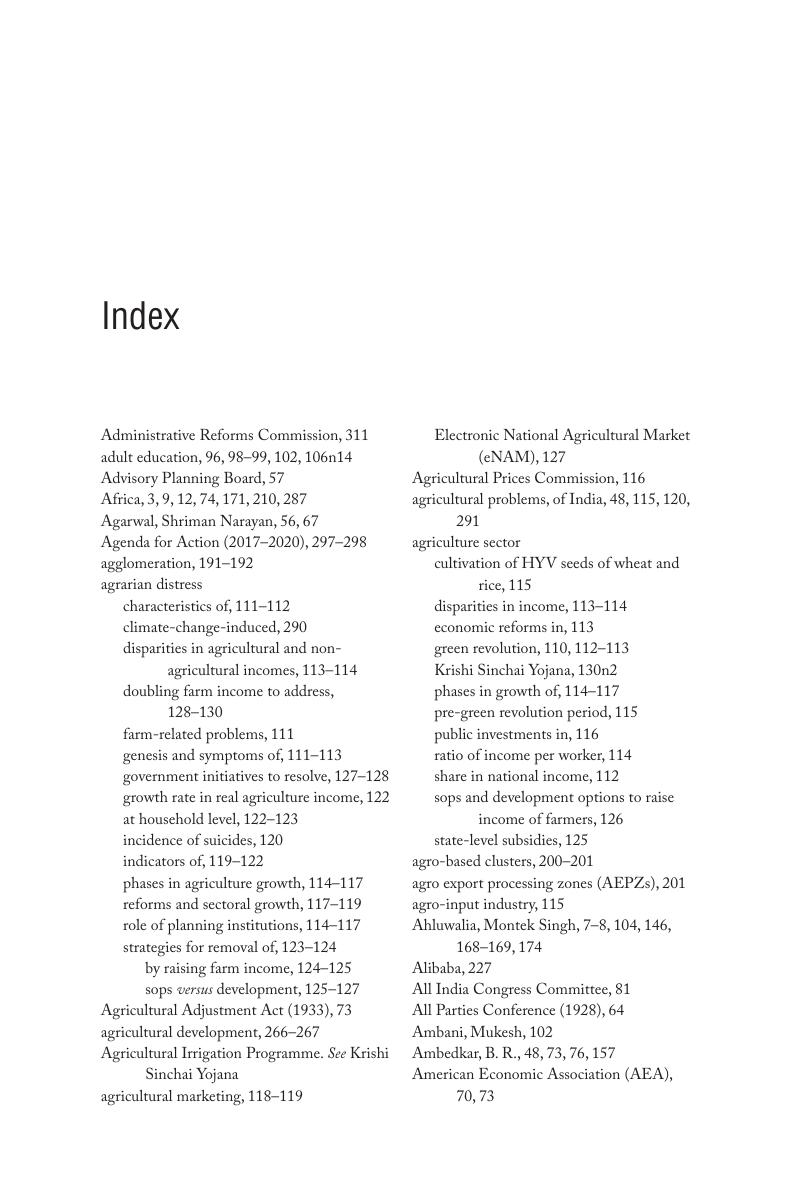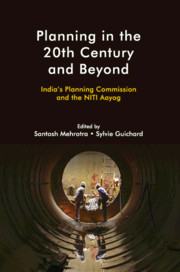Book contents
- Frontmatter
- Contents
- List of Figures
- List of Tables
- List of Abbreviations
- 1 Planning for a 21st Century India
- Part I Origins: Ideas and Ideology
- 2 From Economists to Historians: Studying the Planning Commission, 1950–2014
- 3 The Long Road to Indian Economic Planning (until 1950)
- 4 Ideas and Origins of the Planning Commission in India
- Part II Changes and Continuity: Development and Adaptation of Planning and the Planning Commission
- 5 The Planning Commission and Education
- 6 Addressing Agrarian Distress: Sops versus Development
- 7 Economic Planning after Economic Liberalization: Between Planning Commission and Think Tank NITI, 1991–2015
- 8 Planning Commission: Obiter Dictum
- 9 On a Revived Planning Commission
- Part III Planning Beyond the Planning Commission
- 10 Make in India
- 11 Manufacturing: The Cornerstone of a Planning Strategy for the 21st Century
- 12 Fiscal Planning to Sustain Growth and Poverty Reduction
- 13 Plan, but Do Not Over-plan: Lessons for NITI Aayog
- 14 Why Does India Need a Central Planning Institution in the 21st Century?
- Notes on Contributors
- Index
Index
Published online by Cambridge University Press: 04 April 2020
- Frontmatter
- Contents
- List of Figures
- List of Tables
- List of Abbreviations
- 1 Planning for a 21st Century India
- Part I Origins: Ideas and Ideology
- 2 From Economists to Historians: Studying the Planning Commission, 1950–2014
- 3 The Long Road to Indian Economic Planning (until 1950)
- 4 Ideas and Origins of the Planning Commission in India
- Part II Changes and Continuity: Development and Adaptation of Planning and the Planning Commission
- 5 The Planning Commission and Education
- 6 Addressing Agrarian Distress: Sops versus Development
- 7 Economic Planning after Economic Liberalization: Between Planning Commission and Think Tank NITI, 1991–2015
- 8 Planning Commission: Obiter Dictum
- 9 On a Revived Planning Commission
- Part III Planning Beyond the Planning Commission
- 10 Make in India
- 11 Manufacturing: The Cornerstone of a Planning Strategy for the 21st Century
- 12 Fiscal Planning to Sustain Growth and Poverty Reduction
- 13 Plan, but Do Not Over-plan: Lessons for NITI Aayog
- 14 Why Does India Need a Central Planning Institution in the 21st Century?
- Notes on Contributors
- Index
Summary

- Type
- Chapter
- Information
- Planning in the 20th Century and BeyondIndia's Planning Commission and the NITI Aayog, pp. 319 - 333Publisher: Cambridge University PressPrint publication year: 2020

